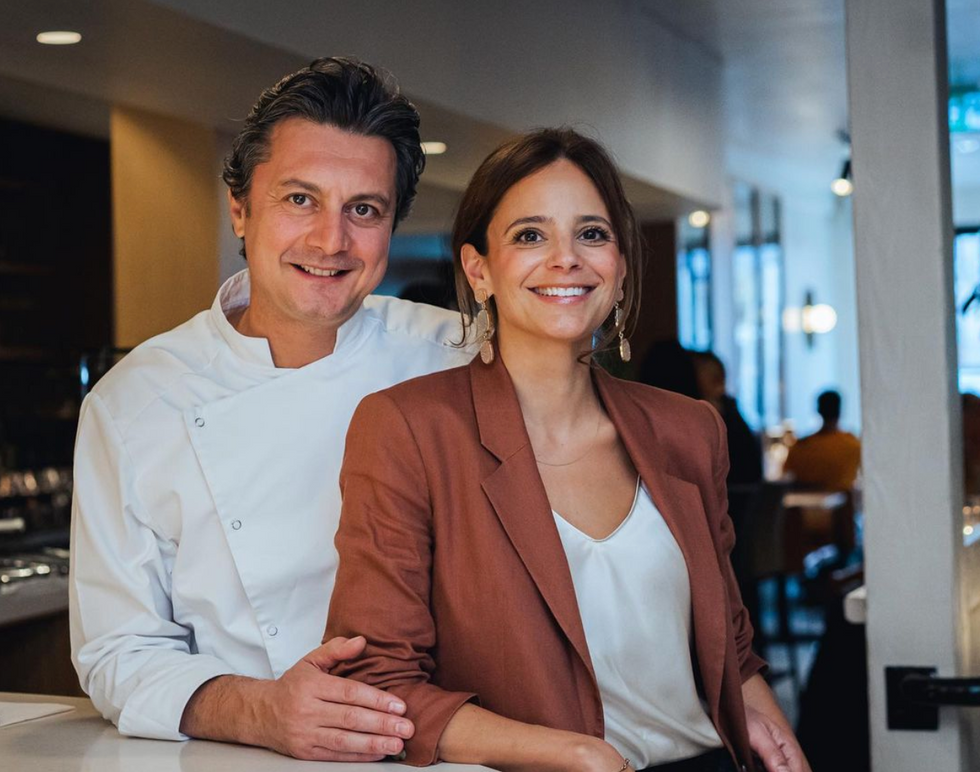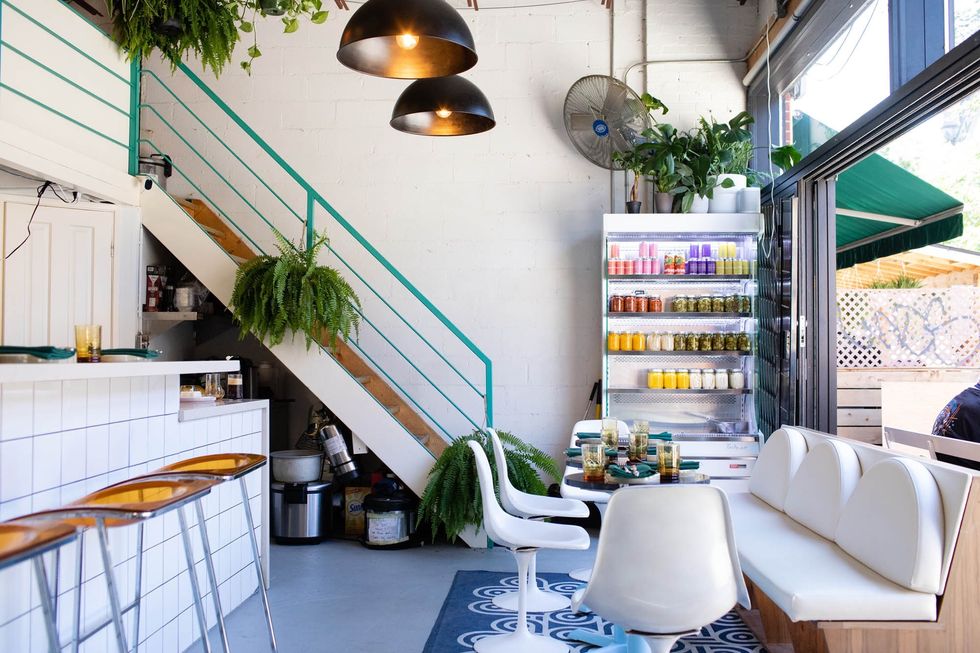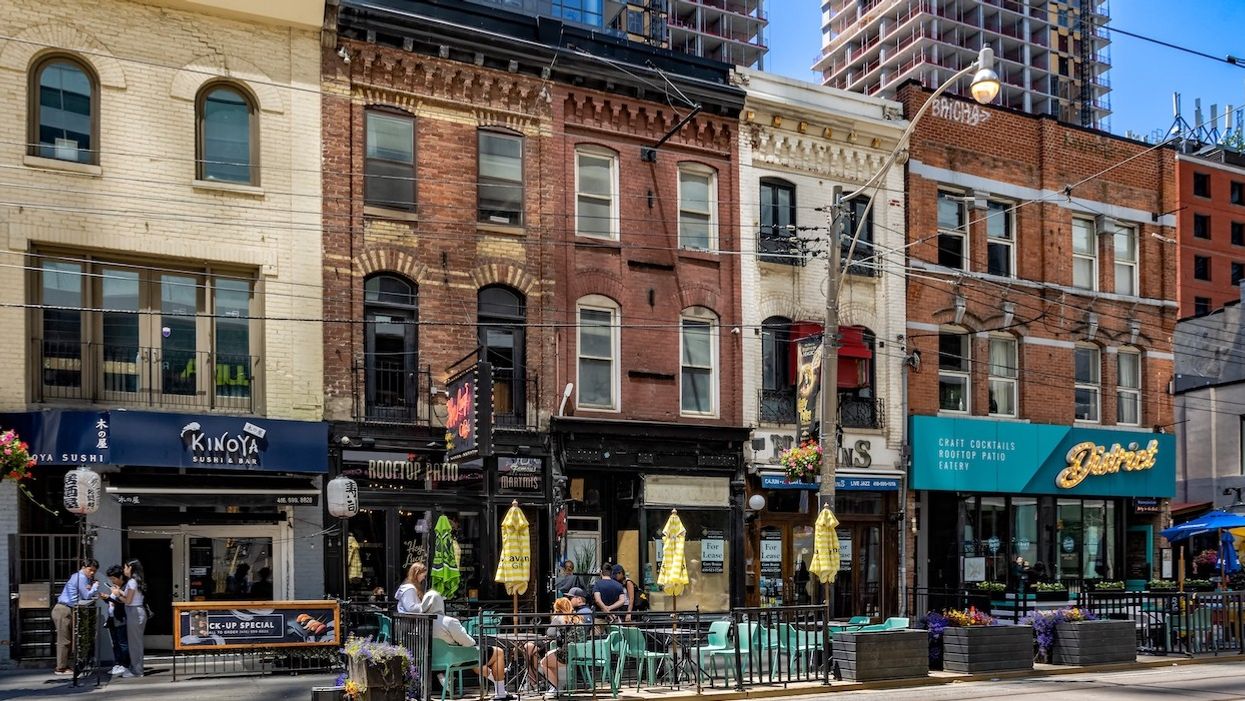Running a restaurant in Toronto is no easy feat – it never has been. Add today’s climate of sky-high interest rates, pricey lease costs and lingering pandemic recovery to the mix, and being a Toronto bar or restaurant owner isn’t for the financially faint of heart.
With the city bustling back to life post-pandemic, however, a healthy handful of buzzed-about new restaurants open their doors each month throughout the Greater Toronto Area (GTA). And many – from Dundas West to King Street and Yorkville – are packed with patrons. Some older spots, however, are still feeling the pinch of the pandemic.
Rob Eklove, Vice President of Urban Retail at The Behar Group Realty Inc., owned a handful of popular former Toronto bars (Supermarket, Tempo, and Lava) and now specializes in helping chefs and owners find real estate for restaurants. He says the general consensus is that Toronto’s restaurant sales are down 30% compared to pre-pandemic levels.
“But that’s dependent on the market you’re looking at,” explains Eklove. “In the Financial District’s core, they may be suffering more than that because office attendance is nowhere near where it was prior to the pandemic. The suburban markets may fare better because people are working from home and staying there.”
In the years rife with pandemic-inspired lockdowns and restrictions, Toronto’s beloved bars and restaurants took a major beating, resulting in the fight of their lives for countless owners. Of course, some didn’t survive. So, the reawakening of Toronto’s restaurant scene – complete with this slew of new additions – is cause for celebration. But that doesn’t mean life’s any easier for the city’s restaurant and bar owners.
A High Price With Little Wiggle Room
Rents for commercial real estate – especially in the downtown core – remain costly. According to the most recent figures from the Toronto Regional Real Estate Board, the average commercial/retail lease rate in Toronto is $26.32 per sq. ft.
Eklove lays out the math with a real estate acronym: GROC (Gross rent occupancy cost). “In a restaurant setting, you want your gross rent to be 10% or less of your sales, in terms of a business model,” says Eklove. “If you’re paying $100K in gross rent annually, you need to be doing $1M+ in sales. So, if you signed a lease where you were paying $300K in gross rent annually, but pre-pandemic, you thought, ‘No problem, I can do $5M in sales,’ then you’ve got it made in the shade. But, post-pandemic, your sales are $2.5M, then you’re getting squeezed.”
As he highlights, some Toronto restaurant owners locked into leases made pre-pandemic may indeed be in a particularly vulnerable spot. “I think that some restaurant groups downtown that did deals at premium rates pre-pandemic are feeling the pressure,” says Eklove. A handful of restaurants throughout the city have subsequently made headlines as of late for their closures due to their inability to afford rent.
For those entering the bar and restaurant market, while rent costs may be down in some cases, Eklove says that deals are harder to come by these days.
“There has been an uptick in activity; there has been an uptick in people engaging landlords and figuring out if deals are possible,” he says. “But, with borrowing costs up and construction costs up, deals are very hard to come by — that’s the bottom line. People have to have a very sharp pencil when it comes to figuring out whether deals make sense. You’d assume that landlords would be more flexible with lease rates rather than continuing to have vacancies, but that’s not always the case. There are other metrics involved that have an impact on the valuation of particular properties. So, landlords are reluctant to do deals because it could adversely impact the valuation of their property.”
Chef Roberto Marotta, who owns downtown Toronto restaurants ARDO and DOVA with his wife, Jacqueline Nicosia, says that something shifted with the pandemic and its devastation on the city’s food and beverage industry when it comes to commercial real estate. “Following COVID, more than ever, the restaurant industry is seen as high-risk,” says Marotta. “It’s extremely challenging to secure a new location because property owners and managers are looking for significant collateral. If you are new to the industry, it can be an extreme challenge to negotiate and secure the property you are interested in.”

The pair have experienced opening a restaurant both pre and post-pandemic. They opened ARDO in 2015, and DOVA in 2021. “Prior to the pandemic there were far less vacancies, so landlords were more willing to negotiate with you on the terms of the lease,” adds Nicosia. “The real estate market took a huge hit during the pandemic so landlords became incredibly strict on their terms for restaurants. Interestingly, despite the pandemic, rental costs have remained high and insurance costs continue to mount. We recently secured the space for our fourth business and third restaurant and these challenges continue.”
Location, Location, Location
For what would become DOVA, Nicosia says she and Marotta were drawn to the private patio of the real estate at 229 Carleton Street, as well as the opportunity it offered to have a unique private dining room. “They were both features our first restaurant, ARDO, didn’t have,” says Nicosia. “We could see the potential in each space and picture what it could become. We took our time looking as it had to feel right and tick all of the boxes.”
The spot is located in the city’s rapidly up-and-coming Cabbagetown neighbourhood. “We wanted to bring something new to the Cabbagetown area that was missing,” says Marotta. “We love the east end of Toronto and wanted to stay in that neighbourhood. We saw DOVA’s current location a few years prior and when it came on the market again the timing was right.”
Local entrepreneur and beverage expert Evelyn Chick, on the other hand, wasn’t looking for bar space at all when she stumbled upon the Parkdale spot that would later become Simpl Things Cocktail & Snack Bar. “I was actually looking for a secondary event space, but Simpl Things came along and it was such a unique space and my vision was so clear as to what I can do with it – to span across two different addresses, with a massive footprint for a patio that will double the size of the restaurant,” says Chick. “The area is difficult because it’s Parkdale, which to some can be rough around the edges, but with the right aesthetics, unique concept, and good hospitality it can be a destination spot. It is a bit tucked away from the chaos of Queen Street, so often people refer to it as a ‘hidden gem.'”
Securing a place to call home is just the first of many challenges for restaurant and bar owners. “It’s challenging in terms of everything being extremely expensive to maintain, including labour, maintenance, insurance…even if the base rent is ‘cheaper,’” says Chick. “New restaurant owners may find a property that they like, but once they get into the build-out stage, budgets are tight as the cost of materials start to increase rapidly and it’s much harder to make your investment back.”

Preparing For An Ever-Changing Market
Eklove calls it “a wash” when asked whether the GTA is gaining or losing wining and dining spaces. “We are losing some spaces downtown, and gaining some spaces in the suburban markets,” says Eklove. “I think we’re in the middle of some uncertainty, but in the long term, there’s no doubt that we’re going to gain more food and beverage spaces.”
Along with this, commercial rents and property values will continue to rise, says Eklove. “It may not be in the foreseeable future, but long-term, I’m confident this is the case.” For those currently in the market for restaurant or bar space, available supply varies throughout the GTA, says Eklove.
“Supply is limited, especially in the suburban markets, because construction costs and borrowing costs have increased significantly, so builders are not building new plazas,” says Eklove. “So, there’s certainly a shortage of supply in the suburban markets, where landlords are getting multiple offers for 1,200-sq.-ft USR space. In the downtown core, there are more options, but people are still quite nervous. The population in the downtown core is nowhere where it was pre-pandemic. People are being careful; they don’t know if a recession is going to hit, and lending and construction costs have increased, so people are being judicious.”
For those looking to secure bar or restaurant real estate, doing the research is key. “Do your homework, research the market, have a solid concept and stick with it, even if small parts of it need to be flexible,” says Chick. “Think about variables and costs involved, as it’s often much more than anticipated. Go through the proper channels, cover your bases, and don’t be frugal with things that have to be done properly – like licensing, plumbing, electrical etc. It will save you a lot of headache in the long run.”
Hiring an in-the-know professional or two also doesn’t hurt. “Hire a seasoned lawyer who is an industry expert and don’t be afraid to push back to secure terms that make sense for you and your business,” says Nicosia. “Know what terms you are willing to negotiate and ones that are off the table because they will directly affect your business. The terms you are able to negotiate will make or break your success.”
Marotta also stresses the importance of finding a strong real estate agent that you trust completely and who has dealt with restaurant locations and negotiations before. “You need to find the right person you can count on,” says Marotta. “We are so grateful we have found the right fit. Finally, don't be afraid to reach out to industry peers. It will surprise you how much anyone in the hospitality field wants to see fellow restaurateurs thrive.”
For diners, today’s uncertain culture may mean higher food prices – something patrons are just going to have to accept (or stay home). But at the end of the day, most of the city’s restaurant owners are driven by passion over profit. And, if we have to dish out a few more dollars to experience their culinary creations, so be it.
“Despite the uncertainty, I’m very bullish about Toronto,” says Eklove. “It’s a great city. I think with all the immigration that the government is promising, the city is going to continue to explode. So, although there are some short-term growing pains in the food and beverage industry, I’m very optimistic about the city in the long term.”





















